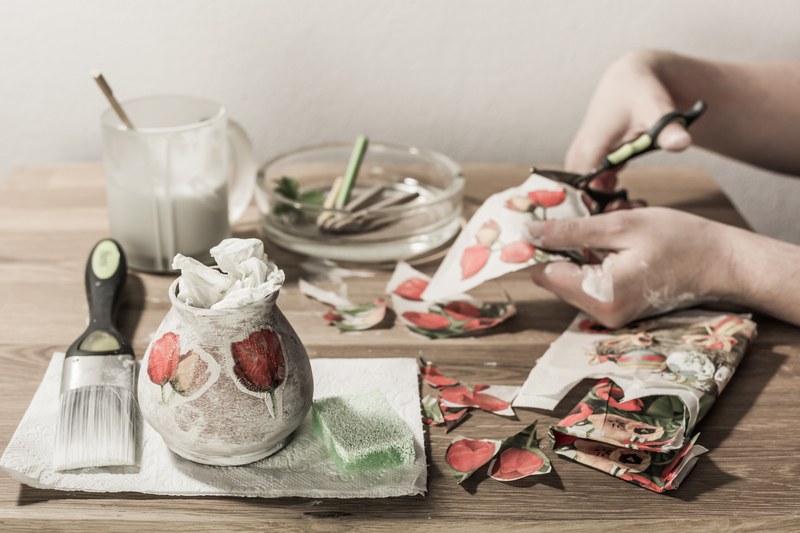How to Handle Pots and Pans That Are Ready for Retirement
Pots and pans are the workhorses of any kitchen, but like any well-used tool, they eventually reach the end of their useful life. Whether the non-stick surface is chipping, the handles are loose, or they just no longer perform as well as they once did, knowing how to handle pots and pans that are ready for retirement is both eco-friendly and cost-effective. In this comprehensive guide, we'll explore what you should do with those worn-out pans, offer tips on recycling and upcycling, and provide guidance on when it's truly time to say goodbye to your old cookware.
When Are Your Pots and Pans Ready for Retirement?
Recognizing when your kitchen cookware has reached the end of its lifespan can be tricky. It's easy to become attached to your favorite frying pan or casserole dish, but using damaged or unsafe cookware can pose serious risks to both your health and your meals.
Signs It's Time to Replace Cookware
- Warped or Dented Pans: If your pots and pans no longer sit flat on the stove, they may not heat evenly, leading to poor cooking results.
- Chipped or Peeling Non-Stick Coating: Flaking coatings can leach chemicals into your food and are a clear sign the pan should be retired.
- Loose Handles and Wobbly Lids: Loose fittings can be dangerous and compromise safety in the kitchen.
- Discoloration and Rust: While some discoloration is harmless, extensive rust or corrosion can affect the taste of food and safety.
- Persistent Stains and Burn Marks: Over time, even well-cared-for pans can become so stained or burned that cleaning is no longer effective.

Safe Disposal: Recycling Old Cookware
Recycling old pots and pans is one of the most responsible ways to dispose of them. Most cookware is made of metals like aluminum, stainless steel, copper, or cast iron, all of which can be recycled. Let's break down how you can recycle cookware that's ready for retirement:
Check Local Recycling Guidelines
- Contact your municipal recycling center to see if they accept cookware. Some centers require that the pans be free of non-metal parts, like plastic handles or glass lids.
- Many scrap metal dealers accept retired pots and pans, especially if they're made entirely of metal.
- Non-stick pans may not be accepted everywhere due to their coating. If possible, remove the coating or look for specialized recycling programs.
Preparation Steps Before Recycling
- Remove any plastic parts or handles.
- Clean the cookware thoroughly to remove food residue or oils.
- Sort by material type. For example, separate stainless steel from cast iron and aluminum, as recyclers may process these differently.
Special Recycling Programs
- Some cookware brands offer take-back programs or recycling partnerships. Brands like Tefal, Calphalon, and GreenPan periodically run mail-in recycling events.
- TerraCycle offers zero-waste boxes for hard-to-recycle items, including pots and pans in some cases.
Alternative Options: How to Repurpose or Upcycle Old Pots and Pans
If you love getting creative, upcycling old pots and pans is a fun way to extend their life while adding style, utility, or fun to your home. With a little imagination, tired cookware can become something brand new!
Creative Ideas for Upcycling Cookware
- Planters or Herb Gardens: Drill a few holes in the bottom of old pots or pans, add soil, and plant flowers, herbs, or succulents. These make charming decorative pieces for patios and balconies.
- Bird Feeders: Turn frying pans or kettles into unique outdoor bird feeders or baths by suspending them from trees or placing them atop posts.
- Kitchen Organization: Old colanders can become handy holders for kitchen utensils, and lids can be repurposed as quirky wall hooks or decor.
- Craft Projects: Paint and decorate to turn worn-out pans into clocks, chalkboards, or wall art for a rustic or vintage look.
- Tool Storage: Use deep pots to store garden tools, art supplies, or crafts in your shed, garage, or home studio.
Donation: Giving Cookware a Second Life
If your pots and pans are still usable, consider donating them to local charities, shelters, thrift stores, or community kitchens. Many organizations welcome gently used cookware to help those in need set up households or kitchens for the first time. Just be sure your donation is clean and in safe condition for use.
How to Safely Dispose of Non-Stick and Specialty Pans
Not all old pans ready for retirement can be treated the same way. Non-stick pans, especially those made before 2013, may contain chemicals like PFOA, which are no longer considered safe. Here's what you can do:
Non-Stick Cookware
- Check with the manufacturer for take-back or recycling programs.
- If your community recycling center does not accept non-stick pans, seek out specialized metal recyclers that can safely separate the coatings.
Glass, Ceramic, and Enamel Cookware
- Most municipal recycling programs do not accept glass or ceramic cookware due to their treatment and thickness.
- Consider donation if items are not chipped or cracked, or upcycle as decorative pieces or storage containers.
Induction Pan Bases or Composite Materials
- Some induction-friendly pans have multiple layers and materials, making them difficult to recycle in standard facilities.
- Check the manufacturer's guidelines for disposal or search for special recycling programs in your area.
Selecting the Right Replacement: What to Look for in New Cookware
Now that you know what to do with pans ready for retirement, it's important to invest wisely in new pots and pans that will last you for years to come. Consider these features when shopping:
- Material: Stainless steel, cast iron, and high-quality non-stick keep their performance longer with proper care.
- Construction: Look for heavy-gauge bottoms for even heating and durability.
- Handles: Riveted handles offer more stability and longevity than those attached with screws or glue.
- Dishwasher Safety: Ensures easy cleaning, though hand washing can extend life.
- Warranty: Many reputable brands offer lifetime or multi-year warranties-a sign of quality construction.
Tips for Extending the Life of Your New Pots and Pans
Once you replace your retired cookware, follow these maintenance tips to maximize the lifespan of your new kitchen tools:
- Hand wash whenever possible, especially non-stick and cast iron cookware.
- Use gentle, non-abrasive cleaners to avoid scratches and maintain finishes.
- Always use wooden, silicone, or plastic utensils with non-stick pans to avoid damaging the coating.
- Store cookware carefully to prevent scratching and dents-consider pan protectors or stacking with towels in between.
- For cast iron, routinely re-season to prevent rust.

Frequently Asked Questions on Pots and Pans Retirement
Can Old Pots and Pans Go in the Trash?
You should avoid throwing old cookware directly in the trash whenever possible. Most pans take decades to decompose and add to landfill waste. Recycling, donating, or upcycling are always more responsible choices.
Are Old Non-Stick Pans Dangerous?
Damaged non-stick surfaces can release flakes into your food or off-gas chemicals at high temperatures, which can be harmful. Always replace non-stick cookware that is chipped or heavily worn.
How Do You Recycle Non-Stick Coated Pans?
Check with the manufacturer or local recycling centers first. If not accepted, specialized metal recyclers may have the equipment needed to process the coating safely.
What Should I Buy as Replacement Cookware?
Look for trusted brands with good warranties, durable materials like stainless steel or cast iron, and avoid the cheapest options, as they are more likely to fail quickly.
Can I Reuse Lids and Handles from Old Pans?
Often, old lids and handles can be reused as replacements for similar-sized cookware or repurposed for crafts and home projects.
Conclusion: Give Your Old Cookware a Responsible Farewell
Handling pots and pans ready for retirement doesn't have to be a chore. Whether you choose to recycle, upcycle, or donate your old kitchenware, you're making a positive impact on the environment and your community. By using the tips in this guide, you can make sure your cookware journey ends on a sustainable note, and that your new pots and pans last for many years of happy cooking.
Remember: The responsible disposal and replacement of cookware is an important part of maintaining a healthy, safe, and eco-friendly kitchen. Cherish your new investments, and when the time comes, handle them with care as they, too, move on to their next life.